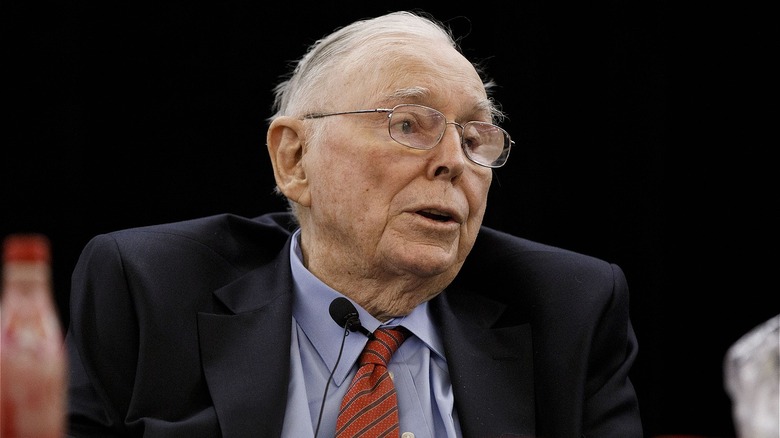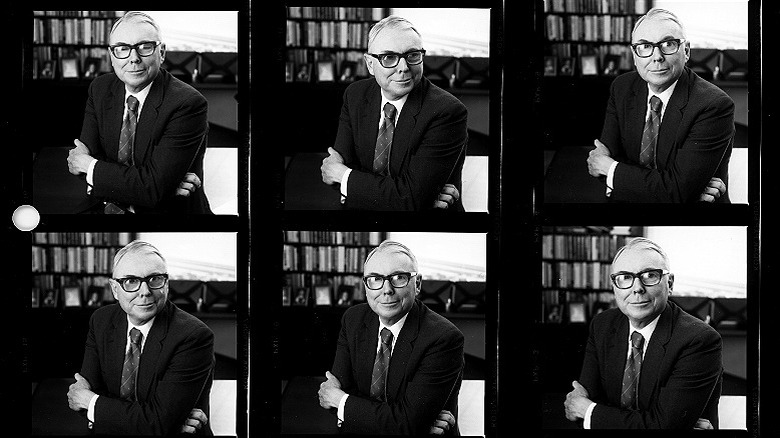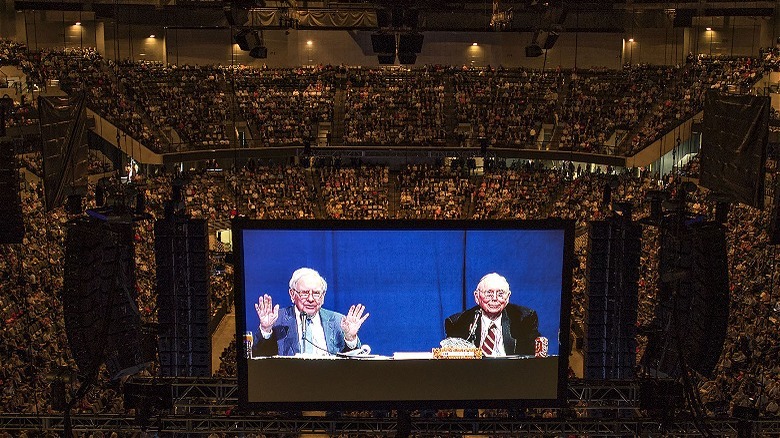Charlie Munger Dies; Warren Buffett's Partner Dead At 99
Charlie Munger, the longtime vice chairman of Berkshire Hathaway and CEO Warren Buffett's partner and right-hand man for more than four decades, died on Tuesday at age 99. According to a Berkshire Hathaway press release, members of Munger's family informed the conglomerate that Munger peacefully died at a California hospital in the morning.
Charlie Munger joined Berkshire Hathaway in 1975 and became the company's vice chairman in 1978. Prior to his time with Berkshire, Munger operated his own investment firm, Wheeler, Munger & Co., from 1962 to 1975. A real estate attorney, he also founded the law firm Munger, Tolles & Olson in 1962, which today maintains offices in Los Angeles, San Francisco, and Washington, D.C. From 1977 to 2022, Munger served as chairman of the LA-based publishing/technology company Daily Journal. He was a philanthropist, and he also had a passion for architecture.
"Berkshire Hathaway could not have been built to its present status without Charlie's inspiration, wisdom, and participation," Warren Buffett said in a statement Tuesday. The Berkshire Hathaway CEO has often credited Munger with providing the blueprint for Berkshire's success, as well as for changing his own approach to investing. "Charlie has given me the ultimate gift that a person can give to something else," he said in 2018. "He's made me a better person than I would have otherwise been. He's given me a lot of good advice over time. I've lived a better life because of Charlie."
From the Army to Harvard
Charlie Munger was born in Omaha, Nebraska, on January 1, 1924. According to Janet Lowe's "Damn Right!" he attended the University of Michigan for two years from 1941 to 1943, where he studied mathematics. In 1943, he left for the Army Air Corps and World War II. In the military, Munger studied meteorology and he ended up in California, where he met Nancy Huggins. The couple married in 1945.
In 1948, Charlie Munger graduated magna cum laude from Harvard Law School, and he and his family moved back to California, where he worked as a real estate attorney. His first marriage ended in divorce in 1953. The couple had three children; their son Teddy died in 1955 of leukemia at the age of 9.
In 1956, Munger married for a second time, to Nancy Barry, whom he met on a blind date. The couple would remain together for the rest of their lives, until Nancy's death in 2010. They had a large family, including four children together and two stepchildren each.
In 1962, Charlie Munger founded two businesses that he would build over the next decade. His genius for investing was evident at his hedge fund Wheeler, Munger & Co. through the growth of his portfolios in the 14 years the firm was in operation (1962 to 1975). As reported by The Wall Street Journal, Munger's portfolios gained an average of 19.8% annually, nearly four times the S&P's (5.2%).
Munger and Berkshire Hathaway
Even before joining Berkshire Hathaway in 1975, Munger had helped the company turn things around. In a 2015 letter to shareholders, Warren Buffett wrote, "The year 1972 was a turning point for Berkshire." He was referring to the deal the company made to acquire See's Candies.
That year, Buffett bought the candy maker for $25 million, though the company's annual pretax earnings were only $4 million. It was the sort of deal Warren Buffett would've never made before, given his preference for "cigar-butt" investing. But Munger believed in investing in "wonderful businesses at fair prices," and he believed See's was a winner. He, of course, was right; since its acquisition some 50 years ago, the company has produced $2 billion for Berkshire, per CNBC. It would become the "dream business" for the conglomerate, and Munger's investment philosophy would become Berkshire Hathaway's blueprint.
Munger is famous for saying "I have nothing to add" after Buffett would field an answer at their annual meetings. But when Munger did speak, everyone would listen. His approach to business and investments was a disciplined one. He believed in being patient, realistic, and rational, and he was not a fan of trendy stocks, more recently sharing his disdain for cryptocurrency and skepticism of artificial intelligence. He was also a vocal critic of diversification, dubbing it "deworsification."
In addition to his longtime role as vice chairman at Berkshire Hathaway since 1978, Munger also was chairman and CEO of Wesco Financial from 1984 to 2011. In 1997, he joined Costco's board of directors. On the topic of getting older, he mused, "The best armor of old age is a well-spent life preceding it" (via "The Tao of Charlie Munger").


